The informative function of the subject in transitive constructions in the history of Spanish
DOI:
https://doi.org/10.54166/rhle.2018.13.04Keywords:
Subject, Topic, Focus, Word classesAbstract
The two major objectives of this paper are to analyse the informative function, topic or focus, of the subject both in general and from a diachronic perspective, and describe some of the syntactic strategies, found in the corpus and used to codify the informative function of the subject, which show the interaction between syntax and pragmatics.
Downloads
References
CORPUS
Siglo XIII
[Calila] Anónimo, Calila e Dimna, Juan Manuel Cacho Blecua y María Jesús Lacarra (eds.), Madrid: Castalia, 1984.
[GEI] Alfonso X, General estoria. Primera parte, Pedro Sánchez-Prieto Borja (ed.), Madrid: Fundación José Antonio de Castro, 2001.
[DLE] Ramón Menéndez Pidal, Documentos lingüísticos de España. Reino de Castilla, Madrid: Consejo Superior de Investigaciones Científicas, 1919/1966.
[Estrellas] Alfonso X, Libro conplido en los iudizios de las estrellas, Gerold Hilty (ed.), Madrid: Real Academia Española, 1954.
Siglo XVII
[Aprobación] Tomás Murillo y Velarde, Aprobación de ingenios, y curación de hipochondricos, Zaragoza: Diego de Ormer, 1672.
[Desengaños] María de Zayas y Sotomayor, Desengaños amorosos, Alicia Yllera (ed.), Madrid: Cátedra, 1983.
[DLNE] Concepción Company Company, Documentos lingüísticos de la Nueva España. Altiplano central, México: Universidad Nacional Autónoma de México, 1994.
[Rey Gallo] Francisco Santos, El rey gallo y discursos de la hormiga, Víctor Arizpe (ed.), Londres: Tamesis, 1991.
Siglo XXI
[Bartleby] Enrique Vila-Matas, Bartleby y compañía, Barcelona: Anagrama, 2000.
[Bartra] Roger Bartra, Antropología del cerebro, México: Fondo de Cultura Económica, 2007.
[ DLXXI] Documentos jurídicos del siglo XXI.
[Medicina] Compendio de tesis de medicina del siglo XXI.
REFERENCIAS BIBLIOGRÁFICAS
Belloro, Valeria (2012): "La estructura informativa", en El funcionalismo en la teoría lingüística: la Gramática del Papel y la Referencia, R. Mairal, G. Lilián y C. González Vergara (coords.), Madrid: Akal, 225-244.
Bogard, Sergio (2015): "Evolución de la estructura oracional con objeto directo antepuesto al verbo con especial atención al siglo XIX", Études romanes de Brno, 2, 29-52.
Bolinger, Dwight (1954-1955): "Meaningful word order in Spanish", Boletín de Filología de la Universidad de Chile, 7, 45-56.
Bosque, Ignacio (1996): "Por qué determinados sustantivos no son sustantivos determinados", en I. Bosque (ed.), El sustantivo sin determinación. La ausencia de determinante en la lengua española, Madrid: Visor Libros.
Büring, Daniel y Rodrigo Gutiérrez Bravo (2001): "Focus-related word order variation without the NSR: A prosody-based crossiinguistic analysis", en James McCloskey (ed.), Syntax and Semantics at Santa Cruz 3, Santa Cruz: Universidad de California, 41-58.
Chafe, Wallace (1976): "Givenness, contrastiveness, definiteness, subjects, topics and point of view", en C. Li (ed.), Subject and topic, Nueva York: Academic Press, 25-56.
Company, Concepción (1991): La frase sustantiva en el español medieval. Cuatro cambios sintácticos, México: Universidad Nacional Autónoma de México.
Company, Concepción (2009): "La estructura general de la frase nominal en el español alfonsí. Esbozo de diacronía", en C. Company Company (dir.), Sintaxis histórica de la lengua española. Segunda parte: La frase nominal, 2 vols., México: Fondo de Cultura Económica y Universidad Nacional Autónoma de México, 3-56.
Company, Concepción (2016): "Estandarización cultural y marginalidad lingüística. El siglo XVII: una paradoja en la historia de la lengua española", en L. Funes (coord.), Hispanismos del mundo. Diálogos y debates en (y desde) el Sur, Buenos Aires: Miño y Dávila, 131-158.
Contreras, Heles (1976): A theory of word order with special reference to Spanish, Amsterdam: North Holland.
Di Tullio, Ángela (2010 [2014]): Manual de gramática del español, Buenos Aires: Waldhuter Editores.
Elvira, Javier (2015): "El orden de palabras", en Lingüística histórica y cambio gramatical, Madrid: Síntesis, 195-212.
Givon, Talmy (ed.) (1983): Topic Continuity in Discourse. A Quantitative Cross-language Study, Amsterdam: John Benjamins. DOI: https://doi.org/10.1075/tsl.3
Gutiérrez, Rodrigo (2002): "Focus, word order variation and intonation in Spanish and English: An OT account", en C. Wiltshire y J. Camps (eds.), Romance phonology and variation, Amsterdam/Philadelphia: John Benjamins, 39-53. DOI: https://doi.org/10.1075/cilt.217.06gut
Gutiérrez, Rodrigo (2005): Structural markedness and syntactic structure: a study of word order and the left-periphery in Mexican Spanish, Nueva York: Routledge.
Gutiérrez, Rodrigo (2007): "Prominence scales and unmarked word order in Spanish", Natural Language and Linguistic Theory. DOI: https://doi.org/10.1007/s11049-006-9012-7
Gutiérrez, Rodrigo (2008): "La identificación de los tópicos y los focos", Nueva Revista de Filología Hispánica, 56, Ciudad de México: El Colegio de México. DOI: https://doi.org/10.24201/nrfh.v56i2.969
Halliday, Michael (1967): "Notes on transitivity and theme in English (Part 2)", Journal of Linguistics, 3, 199-244. DOI: https://doi.org/10.1017/S0022226700016613
Jackendoff, Ray (1972): Semantic interpretation in generative grammar, Cambridge: MIT Press.
Kiss, Katalin (1998): "Identificational focus versus information focus", Language 74, 245-273. DOI: https://doi.org/10.1353/lan.1998.0211
Lambrecht, Knud (1986): "Topic, focus, and the grammar of spoken French", tesis de doctorado, Berkeley: University of California.
Lambrecht, Knud (1994): Information structure and sentence form, Cambridge: Cambridge University Press. DOI: https://doi.org/10.1017/CBO9780511620607
Ordóñez, Francisco y Esthela Treviño (1999): "Left dislocated subjects and the prodrop parameter: A case study of Spanish", Lingua, 107, 39-68. DOI: https://doi.org/10.1016/S0024-3841(98)00020-5
Prince, Ellen (1981a): "Topicalization, focus-movement and yiddish movement", en Proceedings of BLS, 249-264.
Prince, Ellen (1981b): "Toward a taxonomy of given-new information", en P. Cole (ed.), Radical pragmatics, Nueva York: Academic Press, 223-255.
Puerma Bonilla, Javier (en proceso): Relación sintaxis-pragmnática en construcciones transitivas a lo largo de la historia del español.
Real Academia Española-Asociación de Academias de la Lengua Española (2009): Nueva gramática de la lengua española, Madrid: Espasa Libros.
Rochemont, Michael (1986): Focus in generative grammar, Amsterdam: John Benjamins. DOI: https://doi.org/10.1075/sigla.4
Sitaridou, Ioanna (2012): "A comparative study of word order in Old Romance", Folia Linguistica, 46/2, 553-604. DOI: https://doi.org/10.1515/flin.2012.019
Szendröi, Kriszta (2001): Focus and the syntax-phonology interface, tesis de doctorado, University College London.
Zubizarreta, María Luisa (1998): Prosody, focus and word order. Cambridge: MIT Press.

















